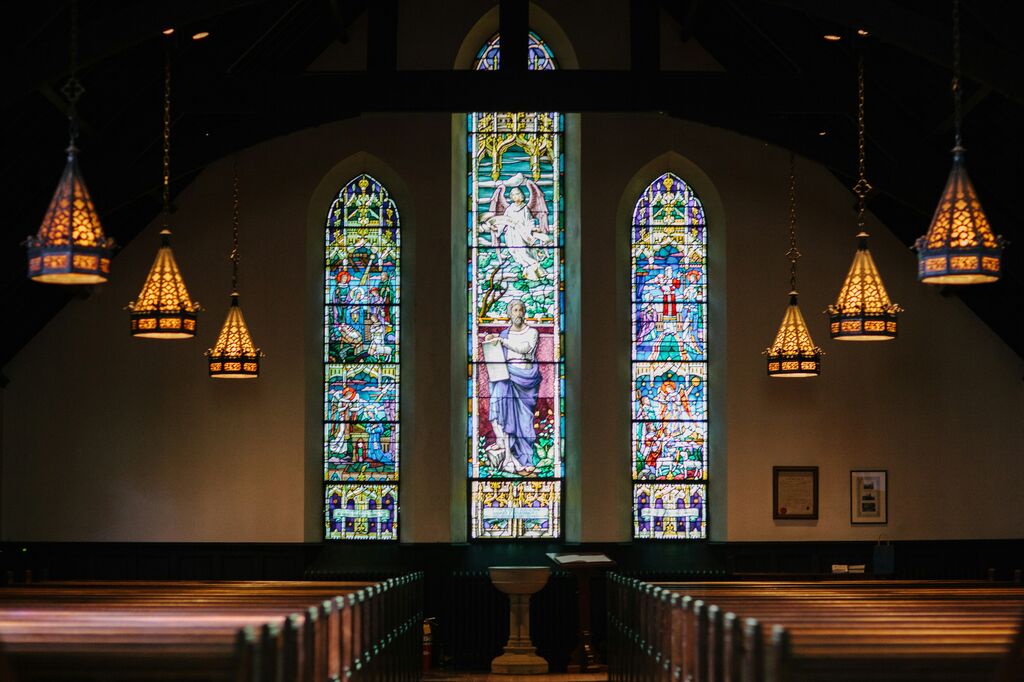One year on from the election: how has the Church performed?

Much can change in twelve months. Joy can become anguish, ambitions can become compromised, missions can be frustrated. But 12 months also provides an opportunity for growth, maturity, and the time required to turn promises into actions.
As we mark the first anniversary of a new Labour Government, many are analysing the Government and Prime Minister’s performance. There was much speculation 12 months ago about what a Labour Government led by Keir Starmer might mean for Christians. People will have different views over how he has performed.
Instead, I have been reflecting on our own performance as Christians, which has been preoccupying my thoughts this week.
Therefore, I want to share some thoughts about the place of Christianity in the public square, one year on from the election. Those who have followed my previous articles will be unsurprised to learn that I think the picture is mixed, and set in the context of some challenging (and some hopeful) social trends.
Growing cynicism about politics
One of those trends is the growing danger of deeply entrenched cynicism about institutions, especially about our democratic institutions and politicians.
Across the UK, 49% of people do not trust the government (only 35% do) and 46% do not trust Parliament (only 34% do). And when it comes to political parties, things get really bad, with 60% saying they do not trust them. (You can find the statistics here.)
Lack of trust in our democratic institutions is getting worse, and it has deteriorated over the last twelve months.
This is not all because of the current government. Previous Governments’ performance (and the political skullduggery that occurred behind closed doors) contributed significantly to the public’s current perception.
The way the media – traditional and social - portray government actions or political decisions monetises and catastrophises events, describing everything as a crisis or incompetence.
But it is also true that the government has fed the prevailing perception and stereotypes. Last July we had controversy over members of the cabinet receiving tickets to events, and the spectacle of the PM defending gifts, including his eyewear.
What could have been healthy scrutiny has become unchecked scepticism; what could have been challenges to power has become cynicism.
We have a part to play in supporting, reforming, and reinvigorating our democracy, but we also need politicians and institutions that seek and strive to uphold the highest standards of public life.
The loss of trust is not just in politics.
We must humbly acknowledge that the Church is also included in this picture. Leaders have had to resign because of sins of omission and commission, and the many public failures of the Church and its leaders over the last twelve months has an impact on the credibility of the Christian voice in the public square. That is just a fact that I encounter.
What we can do about that I will come to later.
Political misappropriation of Christianity
The last twelve months have seen two political responses to this growing cynicism about politics and politicians. Both involve what I see as the potential misappropriation of Christianity for political advancement and gaining power over other groups.
Politics can become idolatrous—especially when people try to dress up nationalism or cultural resentment in religious language. Recently we’ve seen vague calls to defend “Judeo-Christian values” from populist figures. These slogans often sound good but lack biblical substance. Worse, they can be used to divide, not unite.
The gospel calls us to more than slogans. It calls us to truth and grace. To justice and mercy. To love even our enemies, not just our allies.
We should never baptise a political party or ideology. Our loyalty is to Christ first—and that will often mean challenging all sides. But it also means engaging with integrity, courage, and love.
And Christianity’s role should never be ring-fenced.
A recent Theos report highlighted how CARE and others were attacked before and during the recent debates on legalising assisted suicide. We have experienced the same attacks in other areas of our work around protecting and respecting life, freedom of religion and helping support families. The intention is clear – stay out of some or all political debate.
But sometimes the boundary setting can be more subtle.
Politicians love the contributions of some Christian organisations. In food banks, addiction recovery programmes, counselling, or youth outreach, the church continues to serve where the state cannot or will not – and this is the type of activity the Government loves to celebrate.
However, the danger is that this places us in a subtle, yet firm, silo, where we are allowed to help the government in certain areas, but by implication, are potentially warned off other areas. There have been politicians – mostly, but not exclusively on the left – who welcome faith-based social action in certain areas, but attack the application of the beliefs that underpin similar action in areas like the beginning and end of life.
Reasons for hope
These trends are not new. They were in play before the election. But they have grown, intensified and accelerated in the last 12 months, and require a response if they are to be addressed and reversed. And we are not without hope – even in the short term.
Amid the tensions I have described, and the sense of cynicism many feel, there is a quiet revival stirring. A recent YouGov survey revealed a 50% increase in regular church attendance among 18–24-year-old men. That’s not a typo. Gen Z is showing spiritual hunger. Many are drawn by the sense of community, purpose, and meaning that churches uniquely offer.
We should rejoice, but also remain discerning. Some young men come to church through online influencers who speak of masculinity and authority—but not always of grace or repentance. The church must meet this moment with clarity, humility, and Christ-centred discipleship. We must not allow the gospel and God’s word to be co-opted by the world’s view of community, family, masculinity and femininity, or power.
Similarly, we can be quick to write off Parliament and politicians, and yet in just the last few months we have seen politicians of real integrity, and at great personal cost, stand up to share their faith and how it shapes their view on issues such as abortion and assisted suicide as well as welfare reform and international affairs.
Many long-time, faithful friends and allies lost their seat last July, but we have many new MPs of faith for whom we need to be praying.
Before the election the Prime Minster made a number of commitments to faith communities, and he has delivered on many of his pledges. A Faith Minster, faith champions in Parliament, and the appointment of a Freedom of Religious belief envoy are examples of pre-election promises kept. The challenge, of course, is what impact and difference all this will make.
To that end, we are not just spectators but participants in our nation’s story.
How should we respond?
What does positive, faithful engagement look like for Christians in this political moment?
Here are five commitments I believe we need to make for the next twelve months and beyond:
- We will not retreat.
We will not believe the lie that our voice doesn’t matter. God has placed us here, in this cultural moment, for a reason. We will not abandon the public square. We will be present. - We will speak with grace and truth.
In a world of outrage and division, we will model a different kind of politics—one marked by integrity, compassion, humility, and courage. We will not shout, but we will not stay silent either. - We will disciple for public life.
Churches must teach not only how to pray and read the Bible, but also about how to think biblically about law, education, the economy, technology, and the sanctity of life. We will raise up Daniels and Esthers for our time. - We will value presence over power.
Culture isn’t changed by winning arguments alone. It’s changed by faithful presence. By being in the room. By showing up. By loving consistently. By serving when no one else does. - We will keep our eyes on Christ.
Politics is not our saviour. No policy or party will bring the kingdom. But we engage because we belong to the King. And His kingdom is breaking in—even now.
As we look at the world our heart should break. We can understand why public trust in institutions is low. But Christ is still Lord. The gospel is still powerful. And the Church is still called to be a beacon of light in a dark and confused world.
Let us be those who step forward—not with fear, but with faith. Not with hostility, but with hope. Not with nostalgia for the past, but with vision for what God might do in the present.
Because when Christians engage in politics with the heart of Christ and the truth of Scripture, we can help shape a society that values life, defends the vulnerable, promotes freedom, and holds out the hope of the gospel.
That is a vision worthy of our calling as people of faith, and a vision our government needs.






